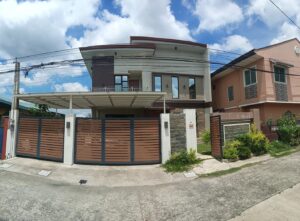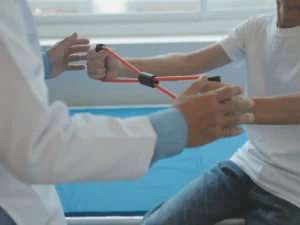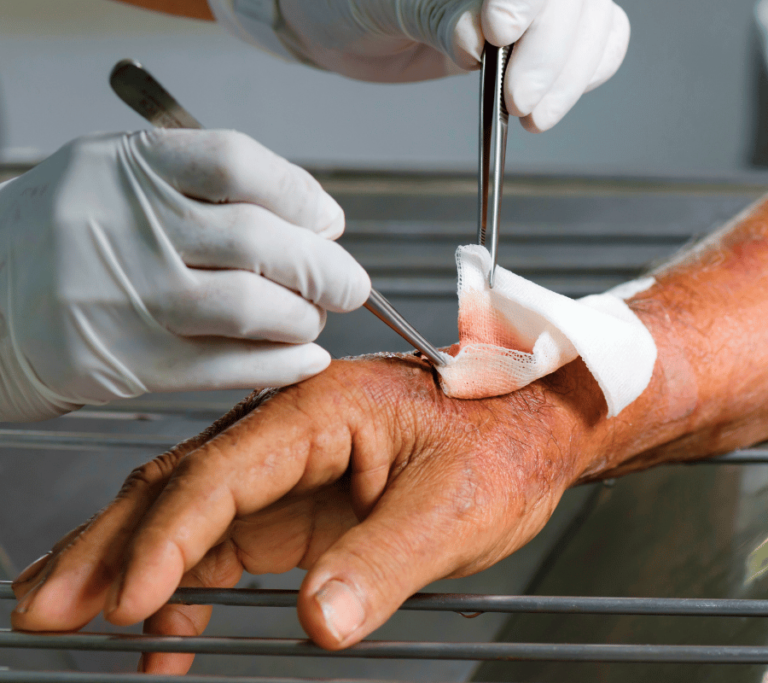Wounds, whether caused by injury, surgery, or chronic conditions like diabetes, require specialized attention to heal properly. When wounds become persistent or complex, standard treatments may fall short, causing prolonged discomfort and increasing the risk of complications. This is where the expertise of an advanced wound care doctor becomes essential. These medical professionals specialize in comprehensive wound assessment and tailored treatment plans designed to promote optimal healing and improve patient outcomes.
What is an Advanced Wound Care Doctor?
An advanced wound care doctor is a healthcare specialist who focuses on diagnosing and treating wounds that are difficult to heal or require more sophisticated interventions. Unlike general practitioners or nurses who may treat simple wounds, these doctors have specialized training in wound management, including the latest diagnostic tools and treatment options. Their expertise enables them to identify underlying conditions contributing to poor healing and address those causes with precision.
The difference between standard wound care and advanced wound care lies primarily in the level of assessment and customization of treatments. While basic care might involve cleaning and dressing a wound, advanced wound care doctors conduct thorough evaluations, often using cutting-edge technology, to develop personalized treatment strategies that target the root causes of wounds.
Why Accurate and Thorough Wound Assessment Matters
The foundation of successful wound healing is a precise and thorough wound assessment. Without understanding the wound’s nature, size, depth, and contributing factors, treatment may be ineffective or even harmful. An advanced wound care doctor performs more than a simple visual inspection; they analyze the wound environment, tissue quality, circulation, and the patient’s overall health.
Identifying underlying issues such as infection, poor blood flow, diabetes, or nutritional deficiencies is crucial because these factors can significantly delay healing or lead to complications like infection or tissue death. A comprehensive wound assessment ensures that every aspect impacting the wound is addressed, allowing for a targeted and effective care plan.
The Advanced Wound Assessment Process
The wound assessment process at an advanced wound care clinic involves multiple stages to gain a holistic understanding of the wound and the patient’s condition. It typically starts with a detailed medical history review, where the doctor evaluates any chronic illnesses, medications, lifestyle factors, and previous treatments that might affect healing.
Following this, the wound is examined using various diagnostic tools such as wound measurement devices, imaging technologies, and laboratory tests to check for infection or tissue damage. The doctor also assesses blood flow to the affected area, often using Doppler ultrasound, to identify circulation problems.
This detailed evaluation allows the advanced wound care doctor to categorize the wound properly and determine its severity. It also aids in identifying potential barriers to healing, enabling the creation of a comprehensive and customized treatment plan tailored specifically to the patient’s needs.
Evidence-Based Treatment Plans for Optimal Healing
Treatment plans designed by an advanced wound care doctor are grounded in the latest scientific research and clinical guidelines. Evidence-based care ensures that patients receive therapies that have been proven effective in clinical trials and practice.
Common treatment modalities may include advanced wound dressings that maintain a moist environment to promote healing, specialized wound cleansers, and topical medications to combat infection or inflammation. In some cases, therapies like negative pressure wound therapy (wound vac), hyperbaric oxygen therapy, or bioengineered skin substitutes might be recommended.
When necessary, surgical interventions to remove dead tissue or repair underlying structures are performed to facilitate wound closure. The advanced wound care doctor continuously monitors the wound’s progress and adjusts the treatment plan as needed to maximize healing potential.
Who Can Benefit from Advanced Wound Care?
Patients with a wide range of wounds can benefit from consulting an advanced wound care doctor. Chronic wounds such as diabetic foot ulcers, venous leg ulcers, and pressure sores are among the most common cases requiring specialized care. These wounds often resist healing due to underlying medical conditions and require a comprehensive approach.
Acute wounds resulting from trauma, burns, or surgical procedures may also require advanced care if complications arise or if the wound is slow to heal. Individuals with compromised immune systems or poor circulation can benefit from expert evaluation to prevent infection and other adverse outcomes.
For many patients, standard wound care may be insufficient. If a wound persists beyond a few weeks or shows signs of deterioration, seeking the expertise of an advanced wound care doctor is crucial to prevent further complications, improve healing times, and reduce the risk of hospitalization.
Why Choose Kalingap Wound Care Clinic?
Located in Quezon City, Kalingap Wound Care Clinic stands out for its commitment to providing advanced wound care services that prioritize patient well-being. The clinic’s team of highly trained wound care doctors employs evidence-based practices and state-of-the-art diagnostic tools to ensure every patient receives a personalized and effective treatment plan.
Kalingap’s holistic approach goes beyond treating the wound itself by addressing the patient’s overall health and contributing factors to promote lasting recovery. The clinic is known for its compassionate care, thorough assessments, and successful treatment outcomes, making it a trusted choice for patients dealing with challenging wounds.
How to Prepare for Your Visit to an Advanced Wound Care Doctor
To make the most of your appointment with an advanced wound care doctor, it is helpful to come prepared. Bring any relevant medical records, including previous wound treatments, imaging results, and laboratory tests. Be ready to discuss your medical history, lifestyle habits, and any symptoms or concerns related to your wound.
During the visit, expect a thorough evaluation that may include physical examination, wound measurements, and diagnostic testing. Don’t hesitate to ask questions about the diagnosis, treatment options, and expected outcomes. Open communication with your wound care doctor is key to achieving the best results.
Takeaway
Choosing to consult an advanced wound care doctor is a proactive step toward healing chronic or complex wounds effectively. With precise assessments, evidence-based treatments, and personalized care plans, these specialists offer hope and healing to patients facing challenging wounds.
If you or a loved one is struggling with a wound that won’t heal, seeking expert care at a trusted clinic like Kalingap Wound Care Clinic in Quezon City can make all the difference. Expert intervention can help prevent complications, reduce pain, and restore quality of life.











